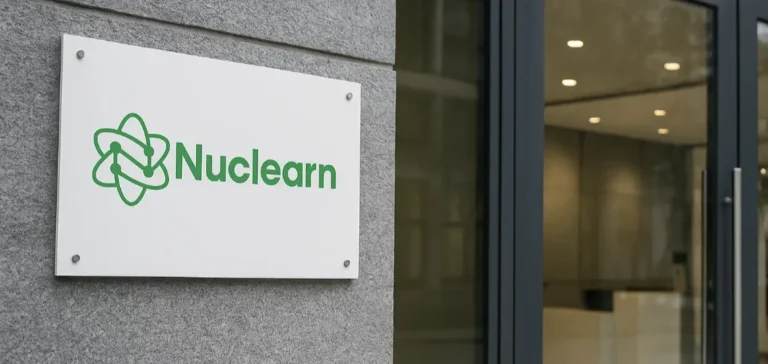US-based technology company Nuclearn has completed a $10.5mn Series A funding round to accelerate the development of its artificial intelligence platform dedicated to nuclear operations. The round was led by investment fund Blue Bear Capital, with participation from SJF Ventures and existing investors AZ-VC and Nucleation Capital.
Deployed in more than 65 reactors across North America, Nuclearn’s solution is designed to automate the complex operational tasks of nuclear power plants. It uses deep learning algorithms trained on millions of sector-specific technical documents. The technology optimises critical functions such as outage planning, regulatory compliance, and condition report analysis.
Meeting the challenges of a constrained sector
As nuclear plants extend their operational lifespan and global energy demand rises, the industry faces a workforce renewal challenge. On average, one in four professionals in the sector is nearing retirement, and each new facility requires over 500 qualified employees. Nuclearn provides a technological response to this shortage by reducing reliance on lengthy manual processes and preserving technical expertise.
The company was founded by engineers with more than 30 years of combined experience in nuclear operations. Its model is based on deep knowledge of regulatory requirements, safety procedures, and operational constraints specific to nuclear. “Our platform doesn’t just process technical terms—it understands the regulatory and operational context behind every decision,” said Jerrold Vincent, Chief Financial Officer and Co-Founder.
A solution already in large-scale operation
The solution is currently integrated within secure environments, with multiple deployment options: on-premise, hosted cloud, or government infrastructure. This flexibility allows operators to adopt the platform without compromising safety or compliance. Existing clients are already using it to automate processes that were previously handled by specialised teams.
The nuclear sector’s momentum, driven by data centre growth and the need for 24/7 low-carbon electricity, is increasing demand for solutions that improve operational efficiency. Nuclearn aligns with this trend, offering a targeted approach to the business needs of nuclear operators.
A market ready for international expansion
With 440 reactors currently operating worldwide and numerous new projects underway, the growth potential for specialised software solutions remains strong. Nuclearn’s new development phase aims to consolidate its presence in the North American market while preparing for international expansion. Investors are backing the founders’ industry experience and the platform’s technical maturity.
“Their technology is already in use in one of the world’s most safety-driven and risk-sensitive environments,” said Ernst Sack, Partner at Blue Bear Capital. “This makes it a solution ready for immediate large-scale deployment.”






















